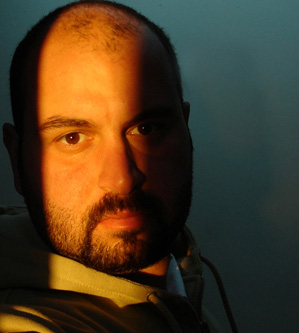G's incident has created a bit of a problem and the stone throwers on both sides have their stash ready to start throwing the moment it goes on the web.
I am not a spokesman for anyone. That is mainly why I don't answer media requests. The guardian said I can write what I want and it won't be them will be asking me about my opinion on this and that. I just had the good fortune to know decent English and know enough about western culture to be able to connect with the mostly western readers. After the last article I wrote in the Guardian I was wondering whether I should stop whining. the problem is that people want to read that things are getting better and we are happy, but things are getting better in such a slow pace that it is almost imperceptible, and with the one step we move forward on one front we move back 3 steps on other fronts. People need to know that their kids and loved ones are here for a good reason and this is what they want to hear. Otherwise they send me emails saying that I am being part of the problem. They send me emails telling me that I should help the Americans capture the terrorists and Baathists, as if they walk around in the streets wearing signs. Maybe we Iraqis did expect too much from the American invasion, we did hope there is going to be an easy way. Get rid of Saddam and have the Americans help us rebuild. I don't think like that anymore. I am starting to believe that the chaos we will go thru the next 5 or 10 years is part of the price we will *have* to pay to have our freedom. This Beirut-ification is the way to learn how we should live as a free country and respect each other; it is just too painful to admit. It is too painful to have to admit that the [burn it down to build it up] process is what we will have to go thru. There is an Arabic poet who wrote a line which my friend Raed had burned into my memory:
This nation needs to learn lessons in destruction.Don’t get this wrong, he meant iconoclasm, destroying what has been set in stone to rebuild new rules. When talking to Ghaith about what happened to him he said that he doesn’t want this to sound that he is against their presence here.
But I used to feel safe when around them, if it looked like trouble go stand by the Americans but now I don’t feel this safe anymore. I hated myself for having the same feelings and fear when I was being detained by the Americans as when I was being detained by the Iraqis. I was worried about the space they would put me in and was hoping someone I know would come by so that I don’t just disappear.someone somewhere wrote that if it were the old regime he and his family and friends would have to worry about their safety. I do need to say that the people who are arrested by the Americans on check points disappear just as they used to do before; this was one of Ghaith’s fears. The Red Cross has access but it is slow. And it takes the Americans ages to “process” you. I am not whining these are facts. Check the Human Rights Watch reports. And Ghaith’s issue should be seen as a broader issue, journalism and this war. This is not the first time a journalist has been harassed by the military. A British friend and an Iraqi who were out reporting got detained for five hours for filming a tank, the film confiscated and of course the Iraqi reporter gets the rougher treatment, the british has the passport to protect her.
And NO it was not a super secret facility.
Yes I know, before you say it this is what I am saying, you don’t have to believe it if you don’t want to. I am a crybaby and a whiner as some like to describe me. Whatever. And I am keeping my anonymity because I want to, most of you do that as well. Sometimes what I have written and still writing puts me in awkward situations with people I must talk to now and then, and I don’t feel very safe about voicing my opinions about certain parties and groups. We still don’t have a First Amendment. Ghaith keeps insisting that what has happened to him is a small price to pay to get rid of saddam, but you see this is a bright young man talking. And he knows the difference between general policies and the individual reaction of a soldier who feels all Iraqis around him are out to get them. I am slowly reconciling myself to the idea that the Coalition forces will pull out in a year’s time (around election time I would say) and we will be left here to learn a lesson in rebuilding. I hope the UN will still be around.
